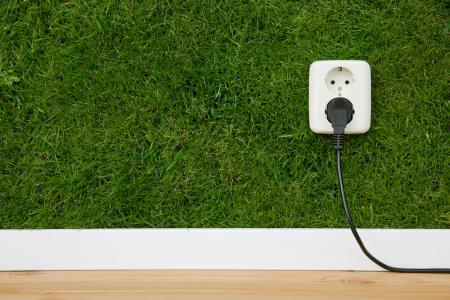
How to Hire an Energy Auditor
Saving money is always easier than making more money, right? Why let expensive energy literally pour out of your home if you can prevent it?
The average home leaks a lot of air—similar to leaving a medium-sized window open year round, 24 hours a day! You may be able to close that “window”-sized hole in your wallet by identifying areas where your heating and cooling dollars are escaping.
Although there are a few ways to find energy leaks on your own, you probably don’t have the equipment required to efficiently test for leaks around windows, doors, and in gaps around the foundation and other areas of your home.
Some electric companies offer free or low-cost energy audits for owners of single-family homes. Call your company to see if they offer this service, but be aware that most free assessments rely on visual checks rather than the use of expensive, sensitive equipment to identify leaks.
If you want a more comprehensive audit of your energy use, hire a professional energy auditor.
Where to Find Professional Energy Auditors
- Begin your search at the Department of Energy’s Weatherization and Intergovernmental Program Office Projects Map, to locate your state’s governmental weatherization and energy programs. Many states offer free weatherization programs for low-income families. You may also find information about auditors in your area.
- Three certification agencies offer online directories of residential auditors: visit RESNET (Residential Energy Services Network), Energy Star, or BPI (Building Performance Institute) to identify local auditors.
- Do an online search for “Certified Residential Energy Auditors near [your location]”
Selecting an Auditor
Before deciding who to hire, inquire about these details:
- Confirm the auditor is certified to perform residential energy audits.
- Check the Better Business Bureau for any outstanding/unresolved complaints.
- Ask for several references and take time to contact each one to see if they were satisfied with the results.
- Ask if their blower door is calibrated. (Uncalibrated doors provide inferior results.)
- Make sure you select a company/individual who does thermographic inspections.
Before the Auditor Arrives
Have the following information ready:
- A list of any problem areas, including rooms that stay too warm or too cold, areas where you have noticed condensation, or where you may have felt a draft
- A year’s worth of energy bills
- Any other concerns you may have about energy use or comfort levels in your home
Ask Questions
Be sure you are present for the audit. Follow the auditor from room to room (and outside). To take full advantage of the auditor’s knowledge and recommendations, take notes and ask questions.
Yes, you will get a written report after the audit is complete, but a conversational approach will help you address issues in greater depth and ask specific questions about the findings.
The Cost
The national average for a home energy audit is just under $400, with the low end being $100 and the high end soaring over $1,500. Be sure to ask your local energy company if they offer any rebates or discounts to people who hire a professional energy auditor and follow the recommendations.
It’s true that the word “audit” conjures few warm fuzzies. But in the case of an energy audit of your home, it can save a great deal of money—and most people DO get warm fuzzies when they find ways to spend less while improving their comfort levels!
NOTE: Be sure to keep your energy audit report (and any notes you took during the inspection, along with receipts for any energy improvements you made) in your home maintenance notebook for your future reference and to present to a prospective buyer.
